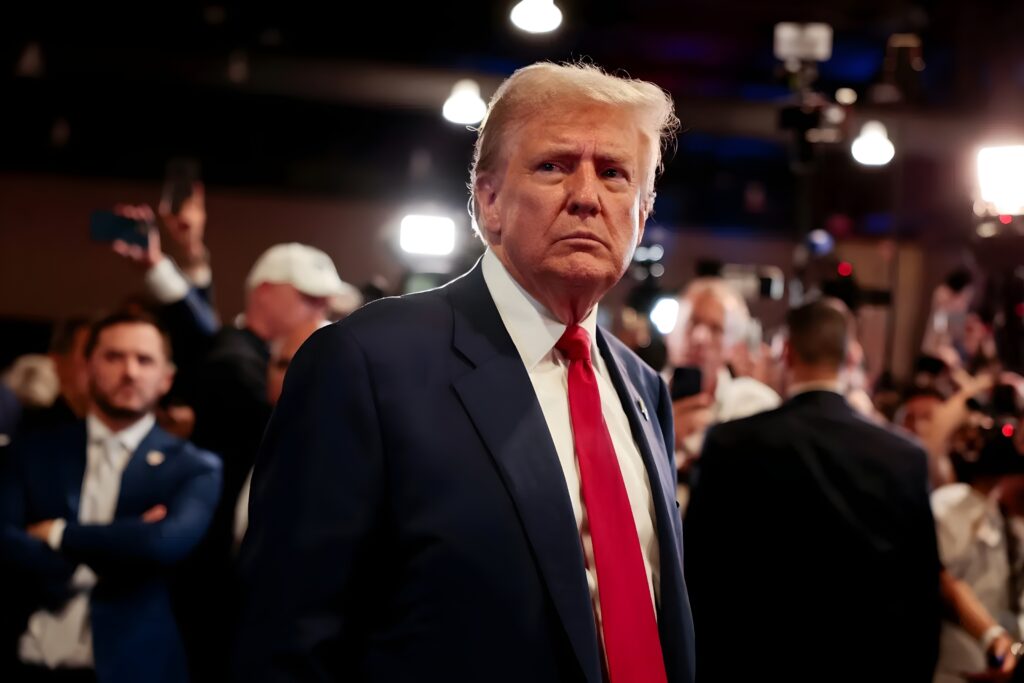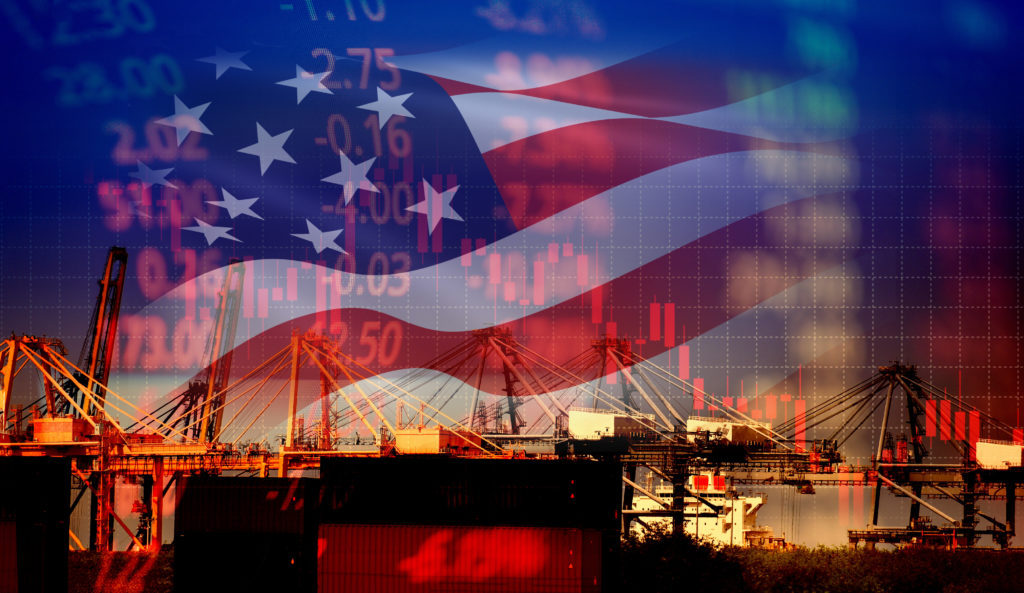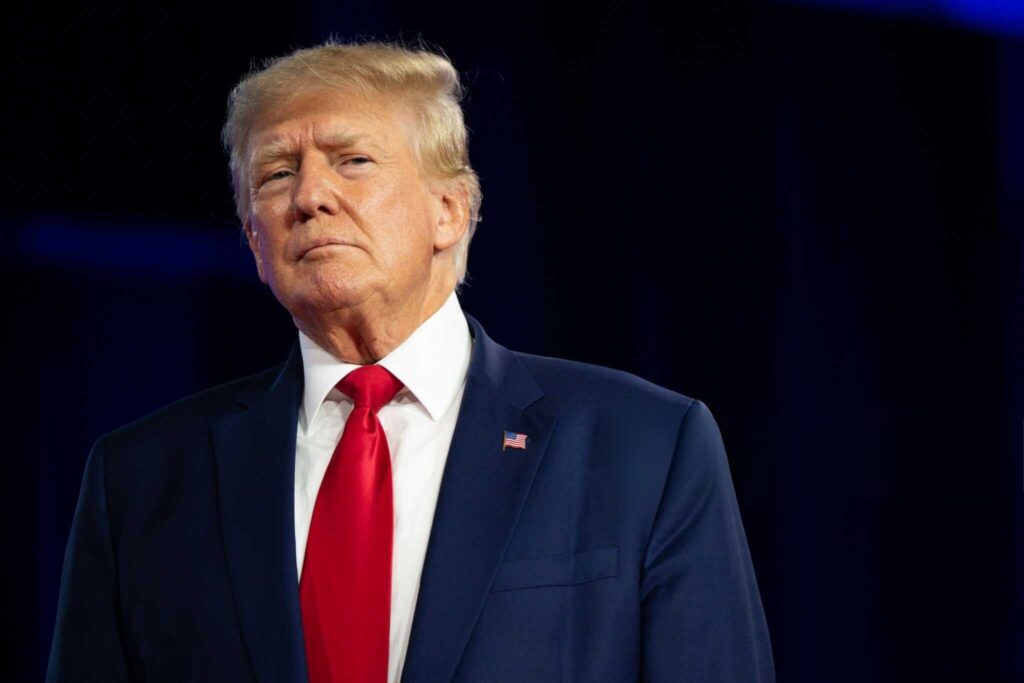When the core institutions of liberal democracy are threatened, it is necessary—as it usually isn’t—to examine why they exist and why they are valuable. Liberal political theory, a glorious luxury when liberal institutions are working well and widely supported, becomes more urgent when people wonder what they are for and whether they are worth it.
Most liberal theorists, I submit, look for liberal values in all the wrong places. Standard rationalist or “high” liberals obsess about the legitimate powers and proper limits of the so-called state, and seek more agreement on the proper justification of those powers and limits than a modern, diverse society can possibly yield. On the other hand, classical liberals—whose most famous recent exemplar was Hayek—rightly start with individuals and their diverse needs, with a complex society and its widely dispersed sources of information. But they wrongly conclude that only the market characteristically furthers diverse interests and dispersed knowledge. In fact, all our familiar liberal institutions do so as well, and have evolved to do so along the same lines as the market has.
The Two Accounts of Liberalism
Most accounts of liberalism, whether of the egalitarian or the libertarian stripe, adopt the perspective of (not to mince words) control freaks. Their authors seek authoritative standards for justifying and evaluating the coercive liberal state, so as to be able to demand root-and-branch reform (or, in headier but currently less popular versions, revolution) if those standards are not met. The worst thing most liberal theorists can say about a state is that it cannot meet the demand for rational justification: that it simply does certain things without being able to give an account, in principle accessible to all, of why it is acceptable, or (even better) mandatory, for the state to do them. That few actual members of liberal societies are inclined to demand such an account is regarded as barely relevant. Liberal theory is written for people who do demand it, who insist that the state’s reasons be pervasively and publicly comprehensible. As Michael Freeden and others have pointed out, “liberalism” in this sense (essentially a neo-Kantian sense) has little, in fact, to do with the central goals of actual, historical liberal politics and its ideological defenders: individualism, choice, opportunity, skepticism towards religion and tradition, the ability to explore and pursue a variety of life plans.
Against neo-Kantian liberalism stands Hayek. He portrays a society—he calls it a great society—in which diverse individuals pursue unknown purposes; no one can predict, explain, or comprehend the overall result; and ever more people can coexist peacefully, and in fact help one another thrive, even if their purposes diverge or even conflict.
Where neo-Kantians focus on the state as the natural locus of public and collective moral purpose, Hayek focused on the market (or, to use his preferred term, “catallaxy”) as the natural site of spontaneous order. Hayek portrayed the market, with its shifting, ever-evolving responses to a staggering range of needs and literally inconceivable amounts of information, as unique and exclusive in its ability to embody true liberalism. The market order embodied an ideal of human diversity to which no form of state action could adequately do justice (except indirectly and negatively, to the extent that state activity consisted solely of general laws serving unknown purposes). And it embodied a classical-liberal modesty regarding our capacity for synoptic knowledge—a modesty that every theory based on collective and public justifications is bound to flout.
Hayek was right to take a Scottish rather than a Kantian approach to liberalism, but wrong to portray the market as the great society’s exclusive embodiment. He was right to see society as a division of intellectual and moral labor, but mistaken in assuming that the relevant labor was divided solely among individuals, and not (in addition) among institutions, each of which furthers diverse human purposes in a characteristic and distinct way. He was right to focus on the diversity of human interests, but mistaken to imply that the only interests that count are those that can be exchanged. And he was right to focus on unintended consequences, yet illogically implied that what had evolved in unintended directions could not therefore be judged as flawed and in need of reform.
Neo-Kantians tend to believe that our most reliable convictions regarding moral principle are those least dependent on our conventional and experience-based judgments of how social and political institutions best function. (Hence neo-Kantians’ bizarre reliance on thought experiments, as if our most reliable intuitions were those least contaminated by a sense of reality.) Classical liberals, and reformists who seek to improve on or draw inspiration from them, make no such sharp distinction. On the contrary, they start from the assumption that institutions are largely normative and that social norms are best understood through institutions. That is: the institutions we currently have exist because they have proven to further, in a rough and ready way, a wide variety of human aspirations. And the modes of interaction that it makes most sense to advocate are those that we can imagine serving as the basis of institutions that will look not completely unlike those that are fairly familiar—because we have evidence that they will work, evidence absent when it comes to institutions that live only in our heads.
The Six Characteristics of Liberal Institutions
What, then, are the normative characteristics of modern liberal institutions?
First, at the risk of tautology, modernity—in three common though controverted senses of that term. A modern institution must be large-scale and anonymous; it must (as Adam Smith noted) allow us to benefit from the contributions of strangers, not just intimates. It must operate by managing conflict and diversity rather than wishing it away (e.g., by defining our favored premises or values as “reasonable” and labeling as unreasonable all those, perhaps even a majority, who dissent from them). And it must be open to steady improvement, either by learning and reform within a society or—a source of improvement neglected by much political theory—by observing and borrowing other societies’ best practices. The guiding analogy is technological progress in response to experienced flaws and demonstrably useful innovations, not reverence for “the mores of our ancestors.”
Second, modern liberal institutions owe their past development and present stability to their ability to serve the interests of all members of society. Whether, how, and to what extent an institution actually does this is essentially and irreducibly controversial, a matter of social and political debate. For now: the existence and stability of an institution reflects a plausible claim to promote everyone’s interests; critiques aimed at institutions typically assert that they leave some out altogether or (more typically) unfairly promote the interests of some much more than others. In any case, this promotion of all members’ interests occurs over time and ex ante: it is a matter of everyone being able to expect substantial benefits in the long run, not to achieve such benefits in every case. So instead of speaking of interests, it might be better to say that institutions provide opportunities in fact, and equal opportunities as a matter of aspiration. The second value of liberal institutions, then, is equal opportunity.
Third, a modern liberal institution promotes indefinite and multiple values and purposes, rather than giving priority to any one. This is the more realistic alternative to certain neo-Kantian liberals’ embattled insistence that the state be “neutral” regarding human purposes. It is akin to Hayek’s claim that the market serves unknown purposes, but is more general than Hayek’s claim and probably more viable.
Fourth, modern liberal institutions value diversity and conflict up to a point; and their first preference in dealing with agents who threaten to bring about truly dangerous conflict is to marginalize and discredit them, limiting their influence and impact, rather than resorting to direct coercion.
Fifth, modern liberal institutions need not reflect a prior plan, nor a post-hoc consensus: they typically arise largely accidentally, and persist in the face of sharp disagreement (or, more commonly, mere ignorance and unconcern) as to their essential nature and proper working.
Finally, modern liberal institutions occupy controverted jurisdictions: each has partisans who want to expand its turf at the risk of impinging on others’. While it would be silly and utopian to claim that this jurisdictional conflict is always productive or optimal (à la “checks and balances”), it is simple common sense to note that it is not always fatal. Whether a certain realm of life will be subject to market exchange or not, or whether it will be subject to general laws or left to individual choice, is a question that is always important and interesting but rarely existential. Different societies can each have viable liberal institutions while answering these questions in somewhat different ways.
The Liberalism of the Market, But Also of Democracy
The market—when properly regulated, and backed by enough of a welfare state to ensure that all can meaningfully hope to benefit from it—fulfills all these classical-liberal (or neo-Hayekian) criteria. But so do other key modern institutions. That a system of laws need not contradict market values is of course orthodox Hayekianism, and that it furthers diverse individual purposes is also central to Lon Fuller’s similar account of law. But few Hayekians acknowledge what this means: that the Rule of Law, and not just the market, is an institution central to furthering our diverse ends.
The same goes for the welfare state. Even a set of social programs that is quite “minimal” in justification—one that does not claim to produce equality or to end exploitation, but merely seeks to avoid desperate bargains, abject misery, and avoidable deaths from injury and illness—will end up being, as it is in all advanced democracies, quite extensive in practice. The welfare state must be acknowledged as a powerful partner to the market, not merely a footnote to it.
For its own part, partisan, representative democracy resembles the market in aggregating a variety of opinions, interests, and sources of information; in frustrating the designs of its most powerful actors, who must (to a substantial extent) note and adapt to the plans and sentiments of ordinary citizens rather than being able to determine them; and in potentially furthering everyone’s interest without reliably reflecting any particular citizen’s values.
Finally, regimes of toleration and free speech share with the market, in addition to the capacity to further unpredictable interests and purposes, something of the market’s evolved, spontaneous, and counterintuitive quality. As any student of their history knows, freedom of religion and of political speech once seemed as bizarre and unwise, in the face of what seemed an obvious need for uniformity of worship and unquestioned allegiance to authority, as market freedom seemed in the face of the then-obvious requirements to keep prices “fair” and stores of precious metals plentiful.
The market, in short, is not unique. Democracy, the rule of law, the welfare state, and practices of toleration and free speech—this list is not exhaustive—have, like the market, the ability to further indefinite purposes and advance everyone’s interests, on the whole, in spite of what might seem in each case an intuitive, ex ante unlikelihood that they will do so.
Liberalism and the State
From another perspective, though, this account could be said to point out the state’s non-uniqueness.
From a classical-liberal perspective, the state is nothing special (or is, arguably, nothing at all). We can, if we like, use “the state” as shorthand for another institution that arguably serves everyone’s interests, i.e., the administrative apparatus that provides public goods relatively competently and impartially. (Though if this is what we mean, we should probably speak of “the civil service” or “the bureaucracy,” not the state, to make our disenchanted intentions clear). But there is no state in the strong sense of a repository of collective identification and normative meaning, no entity that acts for all of us as if it were a person and deserves our reverence as if it were a parent.
To resist the reification of the state is to depart from most mainstream political-theory accounts of democracy, even many that are supposed to be highly pragmatic. Most democratic theorists cannot help regarding the democratic state (or, in more populist, American form, simply “democracy”) as the common, conscious entity that “must” speak for the moral purpose of the whole, and that must, allegedly, be the final arbiter of disputes among other institutions. There is no such must, and no such entity. As Hume argued, allegiance to governmental authority is essentially de facto, and rests on the same basis as observance of the laws of property: the sense of each institution or practice’s ability to further our advantage. When any social practice ceases to be useful, observance of it ceases to be required.
All this may sound like an “anti-statist” position, but it is not distinctively that either. If the above account is right, it will tend to discredit both the state and obsessive fear of the state, by suggesting that coercive force is a much less important issue than commonly thought.
Coercion is not among the state’s most interesting qualities, and distinguishing “legitimate” from “illegitimate” coercion not among political theory’s most interesting tasks. While governments may monopolize the legitimate use of force (a Weberian doctrine that is more dubious than it seems), they do not remain legitimate for long if they routinely resort to force. When liberal institutions and practices are widely accepted and working adequately well, their authority rests on convention, not force; this convention, in turn, rests on a sense of their general advantage. That some of those institutions and practices are ultimately (but not importantly) backed by coercive force is not one of the ten or so most noteworthy things about them. People usually obey the law not because they fear being marched off to jail at the point of a gun but because not obeying means incurring economic, social, or internal (i.e., moral) costs: exactly the same sort of costs that we risk when we defy a boss or break a promise.
Demystifying Non-market Institutions
The resulting picture of liberal institutions—I would call it “realist,” but the thing matters more than the label—is neither anti-market or anti-state, but anti-mystification. Many institutions are potentially useful; none is uniquely useful.
And, crucially: none automatically works well. In some sense, every institution works adequately well, since it would not have evolved and persisted if it did not. But if every durable social institution probably benefits everyone to some degree, it tends to benefit different members of society unequally, in ways that are neither random nor evanescent but durable because they track, and solidify, unequal social power. The games that describe our social institutions may be positive-sum, but at the same time they also tend to be biased or impure—or, to use a perennial term, rigged. Libertarians tend to emphasize that our institutions are mutually beneficial; reformists, that they are skewed (or, in populist language, rigged). Both are right —though there seem to be immense psychological pressures that prevent us from keeping both simultaneously in mind.
What is the point of a theory that sees liberal non-market institutions in what many would describe as Hayekian terms? Doing so might seem guaranteed to antagonize everyone: libertarians will resent the insult to the distinctive genius of the market; progressives, the insult to the moral dignity of the state; conservatives (if they are still listening) the insult to both. One response is to defend the theory simply on the grounds that it is (I submit) true: descriptively accurate and normatively valid. But describing liberal non-market institutions this way also yields gains in terms of ideological innovation and advocacy.
Broadly Hayekian insights will become ever more appealing the less they seem like special pleading on behalf of those who have reason to value the market above other institutions: that is, the wealthy and those whose skills and character traits command particularly high market rewards. Not everyone is equally well situated to make money, nor equally constituted as to find their life’s meaning in doing so. That some will find their advantage and their purpose through social institutions other than the market is both natural and completely legitimate. The market will be more universally valued when its status as one extremely valuable institution among others is clearly admitted. Arguably, Hayek himself did so to some extent in appreciating law and (with varying affect) the welfare state. But something much more systematic and full-throated is called for.
On the other hand, reformist liberals will be better able to persuade skeptics of their program’s importance if they stop relying on abstruse theories whose appeal is limited to the distinct minority of social actors with a taste for demanding that everything have a reason. The appeal of liberal institutions ought to be much more universal. Whatever people want (unless this includes ending or crippling liberal institutions), liberal institutions will help them get it; and the alternatives to liberalism only appeal to those willing or eager to let others dictate what sorts of things they ought to want.
The Astonishing Diversity of Our Dreams
Liberalism understood in the usual, rationalist way has, oddly but inevitably, something in common with populism. For both rationalist liberals and populists, something—reason, or else some form of ascriptive belonging, via nation or class—is supposed to yield up a common set of commitments, and constitute us as a sort of community, in ways that place us in permanent opposition to the unreasonable or the traitorous.
Liberalism understood in the more realist, Hayekian way is the opposite of populism. Hayek liked the term “catallaxy” partly because one of its Greek meanings was “to turn enemies into friends.” The true method of liberalism is mutual benefit; the true virtue of liberal institutions is not that they further an agreed-upon doctrine of justice but that they respect the diverse and possibly clashing purposes of individuals who do not agree on justice (or much else). Put differently, realist liberalism is the kind of liberalism that, perhaps surprisingly, most closely reflects the ethos of the modern novel: its astonishment at the extent of our incommunicable subjectivity, its conviction that each psyche contains (to quote the character from Marilynne Robinson’s Gilead) “a little civilization.” Diverse by nature, we come to be ever more diverse as a result of social and political development. The further we are from violent anarchy, the less we resemble one another in our zeal for mere survival. My aspirations will not excite you; my vision for society will not motivate you; the justifications for government policy that convince me will not convince you.
Liberal institutions do not deny or seek to alter this state of normative fragmentation but, on the contrary, work with it and tend to celebrate it. The true motto of liberalism is not “let us rule by reason”—since when each of us uses reason, our diverse premises place us at odds—but “may you all pursue your dreams.” One way of defining a liberal institution is as one that makes it less likely for everyone that his or her most frequent dreams, whatever they concern, will be nightmares. But institutions themselves are, for most people most of the time, wholly instrumental. They neither create nor embody many individuals’ dreams. We should stop pretending that they do, or complaining that they do not.
—
Andrew Sabl is Orrick Fellow and Visiting Professor in the Program on Ethics, Politics, and Economics at Yale University (andrew.sabl@yale.edu). He is the author of Ruling Passions: Political Offices and Democratic Ethics (Princeton, 2002) and Hume’s Politics: Coordination and Crisis in the History of England (Princeton, 2012). He is currently completing a manuscript tentatively titled The Uses of Hypocrisy: An Essay on Toleration, and after that will be working on the subject of this piece. A longer and more scholarly version of this essay appeared in the Critical Review of International Social and Political Philosophy.





